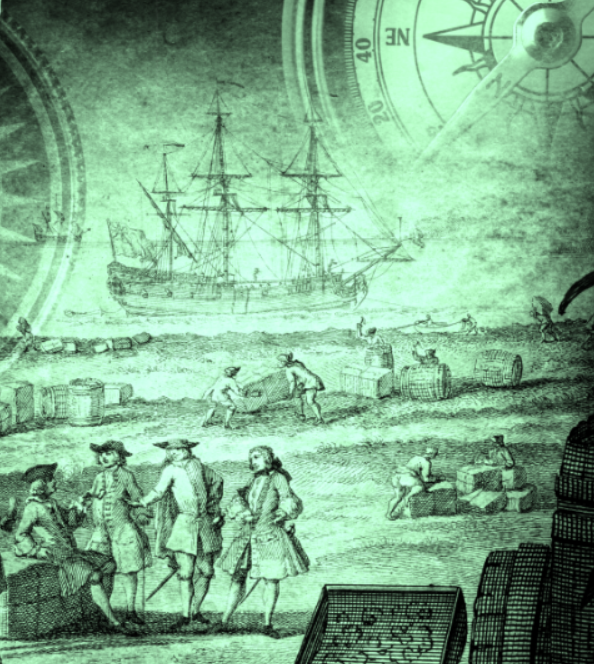- UNITS
- Unit 9 - The Roots of Civil Law
- The Game of Words
- Prof. Quinn and Paul's Conversation
- Eloquence
- Latin Phrases
- Language Knots
- Test Corner
- LEARNING

♦ This introductory exercise aims to give you a feel for the sound and rhythm of the language, whilst presenting an overview of the maritime topic at hand. ♦ By reading and then listening to the accompanying audio, you’ll discover how words are pronounced and some simple sentence structures. ♦ Once you are comfortable with how the written and spoken words are connected, you’ll be ready to focus on keywords in the next exercise.
The Roots of Civil Law
Most modern nations have one of two types of legal tradition: common law or civil law. Today’s focus is civil law, which emerged from Roman law, and was practiced widely across Europe and then the rest of the world.
Civil law is derived from legislative decisions from the political institution of a state.
Civil law is usually set out in codes (organised and comprehensive law texts), which are in turn built into larger systems, and tends to rely on general principles for rulings. Civil Law can be further divided into types: for instance, substantive law decides whether acts are criminal or civil offences, procedural law explains how to decide if an act is criminal, and penal law decides the appropriate penalty. The judge’s role is to apply the law as best defined in the legal code; the judge thus works within a relatively fixed framework. The legal code itself is created and updated by the nation’s governing body.
Civil law comes from the Latin term ‘ius civile’, which was the law as applied to all Roman cives, or citizens. It was first formally unified in the Justinian Digests in the 6th century AD, and then lost with the Fall of the Roman Empire. The texts resurfaced in 11th century Italy, in Bologna and across the other emerging Republics. The need for a complex legal system returned as Europe recovered from the Dark Ages and confronted invasions from the Scandinavian North and the Arab South.
Throughout the second millennium European jurists increased their study and development of civil law, producing texts to unify local customs with ancient civil law, such as Hugo Grotius’ Introduction to the Jurisprudence of Holland. In the Enlightenment of the 18th century, rulers followed jurists and produced comprehensive civil codes based on the jurists’ past work. These included Austria’s 1786 Code of Joseph II and Complete Civil Code of 1811, Prussia’s Complete Territorial Code of 1794, and France’s Napoleonic Civil Code of 1804.
These civil codes became the basis of European law, and through European states’ global empires were exported to the rest of the world. Eventually countries like Russia and Japan adopted similar systems to align with the emerging global standard. During this time, there was also a shift in emphasis, away from the original ideas of individualism that had shaped the original codes, and instead towards the Social Idea. This was reframing these codes to balance the needs of society alongside the freedoms of the individual.
The European Union resulted from civil law. This difference between English and European legal traditions, that is, common law and civil law, has even been nominated as a factor behind Britain deciding to leave the European Union. This might be seen as a very real-world impact of ‘dry’ legal theory.
